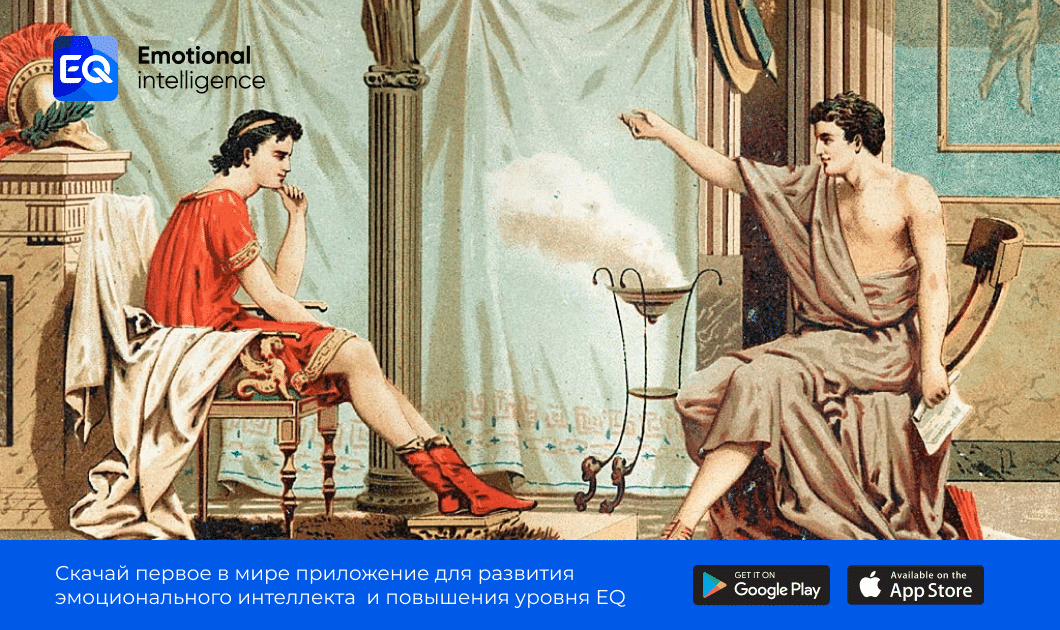Alexander the Great or Alexander the Great (356-323 BC) the legendary commander, tactician and strategist, the king of Macedonia from the Argead dynasty, the creator of a huge world power that lasted until his death.
The psychological portrait of the young ruler speaks of his incredible determination and strong will. He was not content with just daydreaming, but resorted to immediate planning and achieving goals.
The boy grew up in the family of the Macedonian king Philip II, receiving from the pope a quality example of iron will, determination and cunning. In an environment of unlimited freedom of action and luxury, Alexander absorbed supernatural feelings of confidence, clarity and firmness, bordering with a god complex. Along with the development of a strong-willed character, fury, unrestrained, inability to control their emotions were added to this, outbursts of anger and aggression often appeared. At such moments, Alexander could not lead himself, making rash decisions.
Once such a story happened, reflecting the essence of the character of Alexander the Great. King Philip was offered to buy the horse Bucephalus. But that horse was very obstinate and wild, no one could pacify him. Anyone who tried to drive around this stallion, he immediately threw off himself. Philip had already thought about giving up the idea, but Alexander, who was watching this, exclaimed: “What a horse they are losing! And all because of cowardice! ” The father, of course, was enraged and a little taken aback by the insolence of his son. He invited the young prince to pacify the horse himself. If that happens, he will receive it as a gift.
Alexander ran up to the horse, took the bridle imperiously and turned his muzzle to the sun, seeing that the horse was afraid of its own shadow. For some time, he ran next to the horse, stroking and calming him. After making sure that the horse had ceased to be nervous, Alexander easily jumped on it and pulled the bridle over himself, restraining Bucephalus without blows or jerks. Alexander felt when the horse calmed down and began to urge him to run, with loud cries and kicks. All this was watched by the father and accompanying Alexander. They were fascinated by the proud and jubilant young prince. Philip approached his son and joyfully said: “Look for another kingdom. Macedonia is too small for you. ” This case became an example of the boy’s extraordinary independence and self-confidence, who knows how to be independent of other people’s opinions and make decisions.
The father understood that the son’s obstinacy often led to impulses and wild states, which means that it is necessary to find the best teacher in order to bring up emotional maturity in the boy. It was Aristotle, a Greek educator who created a complex system of philosophy that embraced both natural sciences and politics and sociology. Later, Aristotle will be called the greatest thinker in history. It was he who was one of the first to describe emotions and control over them as the most important tool for personality development.
He took up the training of the energetic Alexander when the young man was 13 years old. For three years, Aristotle was a mentor and cultivated in the boy a love of natural sciences, ethics, philosophy. The learning tactics were based on interest. While walking through the green grove of Mieza, they had conversations, studying and discussing information from the methods of government to the basics of the structure of plants and animals. Alexander was very lucky that his mentor was the greatest thinker and owner of systemic knowledge about the emotional sphere. He helped Alexander grow from indiscretion to prudence and prudence; a certain caution and expediency appeared in his character. This is an example of a true teacher who was able to curb the fickleness and exuberance of his student and turn it into artistry and charisma. He also instilled in Alexander a great interest in Greek culture and in reading books in general – he kept his beloved Iliad under his pillow.
Alexander the Great grew up in an environment where it was impossible not to want a lot. He was encouraged by parental care and a motivation for belligerence. His character was complex, but strong – like a bomb that could explode with fury and intemperance in deeds. Only a wise mentor could instill ambition in Alexander. He taught the general to pacify impulses of character and instilled a love of natural sciences and medicine. Alexander once said that he was obliged to Aristotle that he was living a decent life.
So, upbringing is an important aspect of development, which can greatly improve the level of emotional intelligence, which will affect the future life strategy. It was upbringing that made Alexander a great commander and ruler, and not just another tyrant and conqueror.


Recent Comments